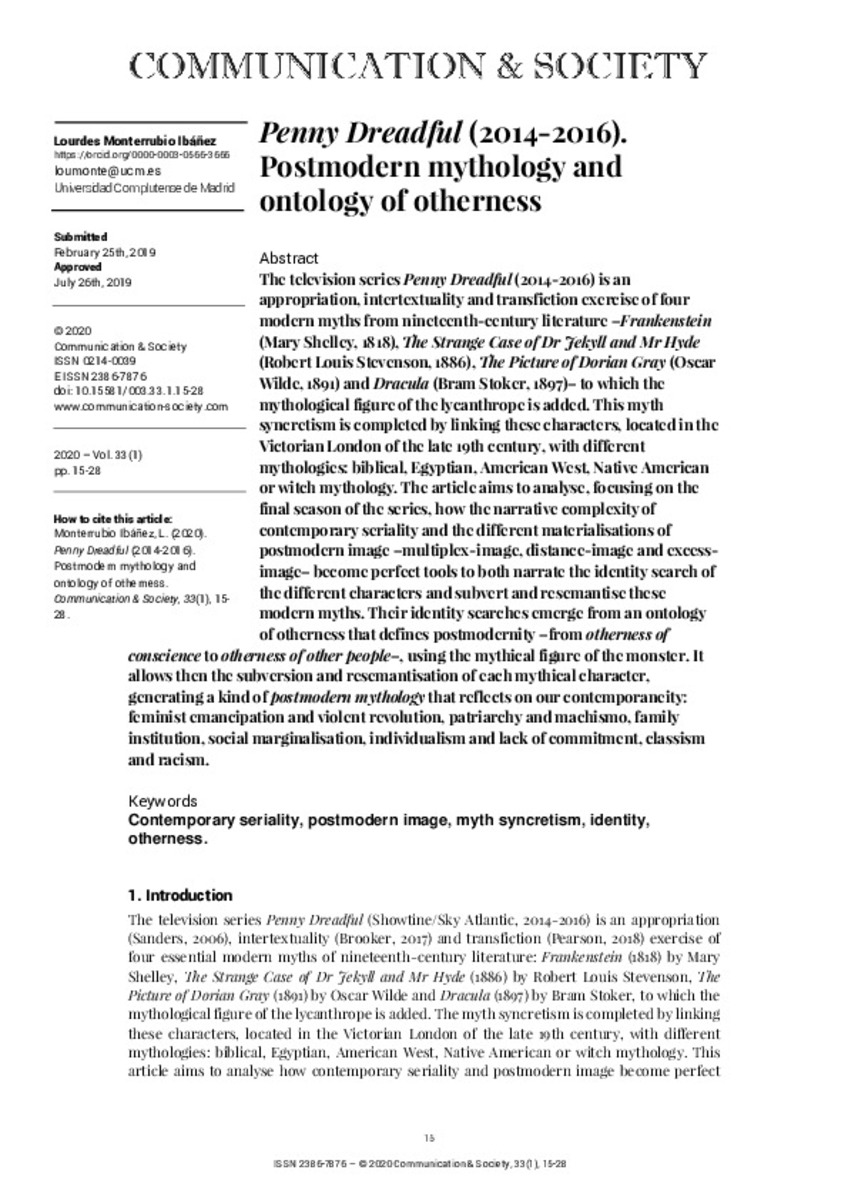"Penny Dreadful" (2014-2016). Postmodern mythology and ontology of otherness
Fecha de publicación :
2020
Editorial :
Servicio de Publicaciones de la Universidad de Navarra
Cita:
Monterrubio-Ibáñez, L. (Lourdes). ""Penny Dreadful" (2014-2016). Postmodern mythology and ontology of otherness". Communication & Society. 33 (1), 2020, 15 - 28
Aparece en las colecciones:
Estadísticas e impacto
0 citas en

0 citas en

Los ítems de Dadun están protegidos por copyright, con todos los derechos reservados, a menos que se indique lo contrario.








